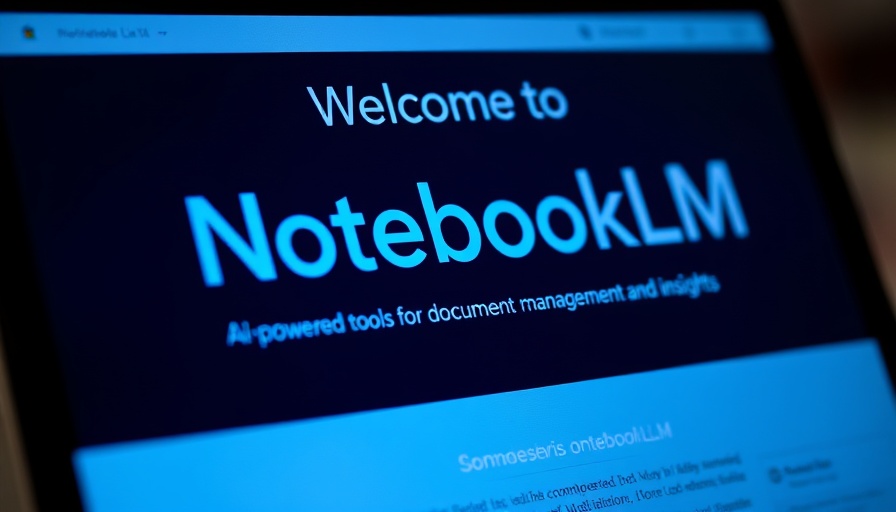
Understanding AI: Dominant Themes from SXSW
At this year’s South by Southwest (SXSW), the conversations surrounding artificial intelligence (AI) coalesced into three major themes that are set to shape the future landscape for businesses in 2025. Industry leaders from tech giants like IBM, Microsoft, Meta, and Adobe gathered to discuss the pressing issues of AI safety, potential biases, and how these advancements can spur innovation.
The Case for AI Safety and Responsibility
The overwhelming discussion at SXSW focused on the importance of AI safety. As Hannah Elsakr, founder of Firefly for Enterprise at Adobe, pointed out, misconceptions about AI often derive from science fiction narratives that dramatize its potential risks. Yet, addressing the legitimate concerns surrounding AI's capabilities and possible misuse is crucial. Elsakr emphasizes that 'AI needs a better PR agent,' highlighting the misconception that AI is designed to dominate our lives.
As discussed by prominent panelists, there is a growing recognition of the necessity for responsible AI usage. It’s no longer sufficient to simply adopt AI technology; companies must also ensure that it aligns with ethical standards. This aligns with observations highlighted in the SAP News Center report, which outlines how AI technologies are evolving rapidly, but so too must the policies that govern their use.
Choosing the Right AI Use Cases
One key takeaway from major industry discussions is the critical importance of selecting the right use cases for AI implementation. Sarah Bird, CPO of responsible AI at Microsoft, emphasized that businesses should not rely on AI for every application. Misapplication can lead to errors and reinforce existing biases, especially in areas like hiring processes. An example is IBM's decision to cease using AI agents for hiring due to the inherent biases that were being reflected in AI-driven selections. Instead, they opted for an AI tool that assists in matching candidates to job roles, reflecting a more cautious and thoughtful approach to AI integration.
This sentiment mirrors perspectives from the IAPP, where experts stress the complex nature of AI applications, which necessitates precise definitions of safety and ethical expectations. Organizations must develop an informed strategy on which problems to solve with AI and what potential harms need to be mitigated.
Adapting to AI's Future
The future outlook for AI in business is promising, particularly as we transition towards 2025. The consensus suggests that AI will evolve into multi-agent systems capable of handling more complex tasks autonomously, as noted in the SAP report. This transition isn't solely about advancing technology but also about how humans and AI will collaborate.
As businesses increasingly acknowledge the value of AI, 2025 will likely witness a more defined shift toward integrating AI seamlessly into workflows. AI technologies will drive efficiencies in operations, allowing human employees to focus on higher-level strategic decisions. The focus on finding a balance between human and AI collaboration is seen as essential in realizing AI’s potential, reshaping job roles towards a more collaborative environment.
Regulatory Landscape and Ethical Considerations
With the rapid development of AI technologies, regulatory frameworks are struggling to keep pace. The discussion around AI regulation isn't just about imposing safety nets; it's also about fostering an environment conducive to innovation. As highlighted in the IAPP’s coverage, ongoing conversations are expected to shape the future landscape, where the need for balance between regulation and innovation becomes paramount.
Stakeholders recognize that while innovation is essential, fostering public trust in AI is equally as critical. The upcoming discussions around AI legislation will continue to highlight the balance required to mitigate risks without stifacing growth, echoing sentiments expressed at SXSW.
Conclusion: Navigating the AI Landscape Ahead
As we look forward to 2025, understanding the dominant AI themes discussed at SXSW is essential for any business leader. These conversations emphasize the importance of responsible AI usage, the selection of appropriate use cases, and the collaboration between humans and AI. For CEOs and marketing managers, the lessons learned at this year’s conference provide valuable insights into navigating the complexities of AI adoption. As the regulatory landscape evolves, making informed decisions will be key for staying ahead.
For professionals eager to engage with these themes further and explore tailored strategies for their organizations, it’s vital to stay informed about developments in AI safety guidelines and best practices.
 Add Row
Add Row  Add
Add 




 Add Row
Add Row  Add
Add 

Write A Comment